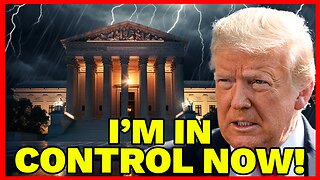Premium Only Content

When Do I Owe a Realtor a Commission?
Save 2% When You Buy a Home: https://www.hauseit.com/hauseit-buyer-closing-credit-nyc/
Save All 6% When You Sell: https://www.hauseit.com/agent-assisted-fsbo/
Sellers typically owe a Realtor a commission once their home has been sold; however, some more “old school” listing agreements will have language stipulating that a seller owes commission as long as a “ready, willing and able” buyer has been found.
When Is a Realtor Entitled to Commission?
A Realtor is entitled to commission at the closing of a transaction; however, home sellers should be wary of the exact language in their exclusive right to sell listing agreement on when a commission is owed.
While it’s most common for listing agreements to stipulate that the commission will be paid by the seller at closing, you will see some more traditional listing agreements that will state that a commission is owed as long as a “ready, willing and able” buyer has been found.
This type of language can be extremely problematic, as a seller could potentially end up owing commission even if the property doesn’t end up selling.
What constitutes a ready, willing and able buyer?
A ready, willing and able buyer is a prospective purchaser who has submitted an offer that is acceptable to the seller, who is highly interested in moving forward with the purchase, who is financially and legally capable of completing the transaction, and who isn’t actively pursuing other purchase options.
As you can imagine, this sort of language in a listing agreement can cause all sorts of problems for the seller, such as owing a commission for a non-binding accepted offer if the seller later decides to back out. If you see this type of language in a listing agreement that a real estate agent is trying to get you to sign, you should run.
Do Realtors Get Paid If a House Doesn't Sell?
Usually no. Most listing agreements these days will stipulate that a Realtor is only paid their commission at closing, meaning that no commissions will be paid unless a property closes.
This type of language is best for a seller, as it precludes the chance of the seller owing commission just because a “ready, willing and able” buyer is procured, even if the seller ends up deciding not to sell to the buyer, or at all.
A seller is also protected if a buyer is unable to complete a transaction after contract execution, i.e. the buyer defaults on the contract for some reason, such as a job loss.
We highly recommend avoiding signing any listing agreement that has language which states that you will be liable for broker commission if a “ready, willing and able” buyer is found.
It is simply not standard anymore in many states such as New York, and especially in densely populated metropolitan areas like New York City where competition between agents for listings is fierce.
We’ve included below a sample clause from a New York listing agreement where commission is only owed if a property is actually sold.
Example Listing Agreement Commission Clause
If the Property is sold pursuant to this agreement, you shall pay New York Realty a Fee for Service equal to six percent (6%) of the total sale price of the Property. This Fee for Service shall be due and payable whether the Property is sold (a) to an independent third party, (b) to the Board of Managers of the building in which the Property is located (exercising its right of first refusal), or its designee, or (c) to a current lessee of the Property.
Do You Have to Pay a Realtor If You Decide Not to Sell?
It depends on what your listing agreement says. Many listing agreements will have language stating that the agreement can only be modified with mutual consent, thus a listing agent could conceivably keep marketing your property online against your wishes.
However, it’s rather unlikely that a listing broker will be able to procure a “ready, willing and able” buyer, much less close a deal, without the owner’s willing participation. For starters, owners could easily make their homes inaccessible for showings, and thus prevent most buyers from seriously placing an offer.
What about if a house simply didn’t sell during the contract term?
Most traditional listing agreements will have some sort of a marketing expense reimbursement clause, whereby a seller owes a fixed dollar amount to the listing broker should a property not sell.
For example, many traditional full-service brokerages will charge the seller several thousand dollars if a property doesn’t sell, to compensate the listing brokerage for marketing expenses.
To be fair, listing agents do a lot of work and are typically only paid if a deal closes. Commuting at odd hours for private showings and taking calls at all hours isn’t easy.
Hauseit LLC, Licensed Real Estate Broker
Tel: (888) 494-8258 | https://www.hauseit.com
_
#hauseit #hauseitnyc
-
 LIVE
LIVE
Delnorin Games
2 hours ago🔴 Live - Star Citizen
558 watching -
 54:59
54:59
Stephen Gardner
5 hours ago🔥Biden insider: Obama was Pulling Strings | Trump Derangement is RAGING!
36.9K180 -
 LIVE
LIVE
EricJohnPizzaArtist
1 hour agoAwesome Sauce PIZZA ART LIVE Ep. #43: Misses Ma’am!
253 watching -
 1:07:23
1:07:23
Vedic compatability astrology
19 minutes agoDiscover Wisdom from Dr. Andrew Dutta!
-
 4:52:51
4:52:51
LFA TV
1 day agoLFA TV SHORT CLIPS OF THE WEEK!
46.7K8 -
 4:12:52
4:12:52
Pepkilla
6 hours agoAI has taken over come with me if you want to live
34.3K2 -
 8:13:39
8:13:39
Grant Cardone
11 hours ago10X Business Summit Day 2
94.8K1 -
 1:51:26
1:51:26
SternAmerican
7 hours agoElection Integrity Town Hall - Lee County with Raj Doraisamy of Defend Florida 2:00pm Est
44.4K3 -
 12:01
12:01
T-SPLY
9 hours agoBREAKING - Jasmine Crockett Under Investigation For Fraudulent Campaign Donations
33.3K43 -
 39:07
39:07
Steph & Kayls
8 hours agoFrom Spicy Content to Sleepless Nights: The Chaos of Being First-Time Parents & Creators | Ep. 1
28.3K4